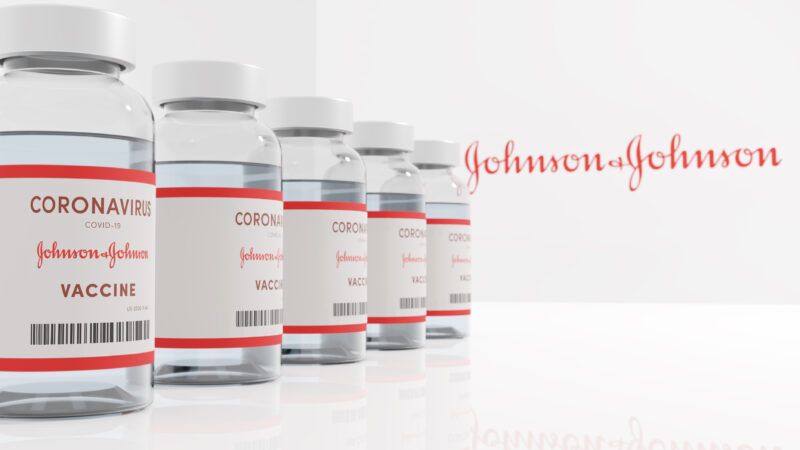The FDA Could Double COVID-19 Vaccine Availability Immediately
So why doesn't it?

Here's a thought-experiment. What if the results of Johnson & Johnson Phase 3 clinical trial of the company's one-shot adenovirus-vector vaccine finds in January that it is safe and, say, 90 percent effective at preventing COVID-19 infections? Surely, the regulators at the Food and Drug Administration (FDA) would issue an Emergency Use Authorization (EUA) for that vaccine. After all, the agency in June set the efficacy threshold for a COVID-19 vaccine that it would prevent disease or decrease its severity in at least 50 percent of people who are vaccinated.
For comparison, the latest pneumonia vaccines protects 50 to 85 percent of relatively healthy adult recipients against invasive pneumococcal disease. With respect to seasonal influenza vaccinations, the Centers for Disease Control and Prevention notes that vaccine effectiveness has generally ranged between 40 percent to 60 percent. "This means that people who get vaccinated may still get sick, but they are about half as likely to get sick as someone who was not vaccinated," observes the agency. "Another important thing to remember is that vaccination may make illness less severe in people who get vaccinated and still get sick."
Keeping firmly in mind that clinical trials can report disappointing results, the initial data from the Phase 1 and 2 clinical trials in October for Johnson & Johnson's adenovirus-vector vaccine are quite promising. Those trials found that 97 percent of participants inoculated with the vaccine developed significant levels of antibodies against the COVID-19 virus.
Meanwhile, clinical trial results find that both the Pfizer/BioNTech and Moderna vaccines are around 95 percent effective at preventing COVID-19 after two doses. But here's where it gets interesting: Preliminary data finds that both vaccines are around 90 percent effective at preventing COVID-19 after just the first dose.
So back to the thought-experiment. If the FDA would issue an EUA for a COVID-19 vaccine that is 90 percent effective (or possibly even lower), then why continue to require a two-dose regimen for the already approved vaccines? I suspect the reason is bureaucratic lack of imagination and courage. Because the clinical trials were set up to evaluate two-dose regimens, hyper-cautious FDA regulators will only ratify what's put in front of them. Apparently, the pandemic "emergency" is not urgent enough for the FDA to authorize the use of effective one-dose of inoculations of the Pfizer/BioNTech and Moderna vaccines.
Assuming no big distribution and manufacturing snafus, Pfizer/BioNTech, Moderna, and Johnson & Johnson reportedly aim to deliver some 300 million doses of their vaccines before the end of the first quarter of 2021. If Pfizer/BioNTech and Moderna were authorized to switch their 200 million doses to a one-shot regimen, that would be more than enough vaccine to inoculate the vast majority of Americans by the end of March. If it turns out that one-shot immunity to the COVID-19 virus wanes, there would still be plenty of time to administer booster shots later as vaccine production ramps up.
Given that a 90 percent effective or even a 70 percent effective COVID-19 vaccine would receive an EUA from the FDA, the agency should urgently consider authorizing a one-shot inoculation of the Pfizer/BioNTech and Moderna vaccines now. Such an action would essentially double the amount of vaccine available, save thousands of lives, and bring the end of the pandemic that much closer.


Show Comments (67)